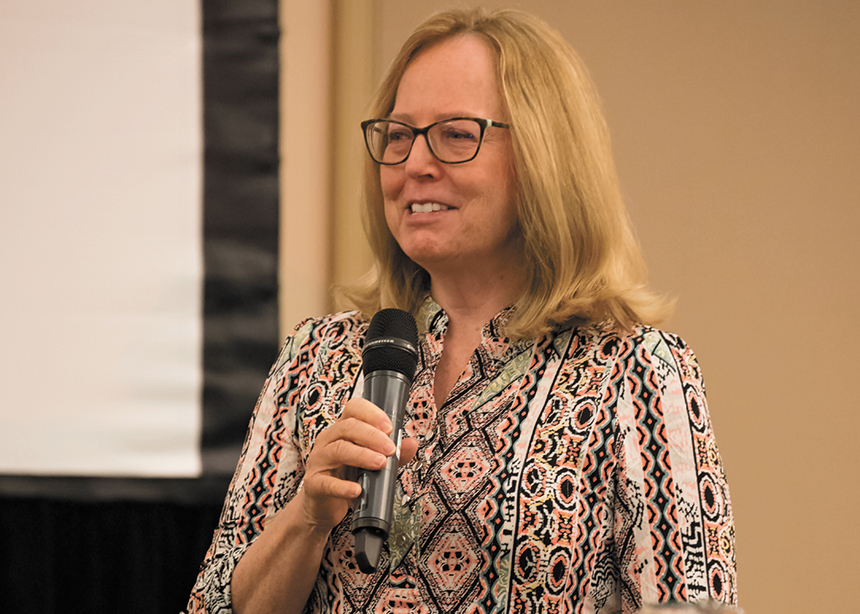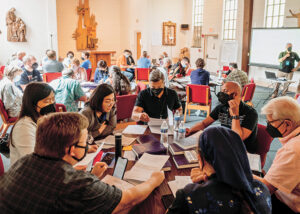The way of the missional God is that the Word became flesh and blood and moved into the neighbourhood, Elaine Heath told church leaders on June 28 at Gathering 2019’s Leadership Day. Heath is a former dean of Duke University Divinity School in Durham, N.C., and an ordained elder in the United Methodist Church.
Much of Heath’s talk, entitled “Trauma informed leadership for a missional informed church,” focused on how various kinds of trauma people have experienced can hinder how they hear the good news of Jesus. Those who are in trauma cannot be fully present because they are so hypervigilant, they feel the “sky might really fall,” she said. She defined trauma as “not what happens to us, but what we hold inside in the absence of an empathetic witness.”
The church must be a good neighbour to its neighbours in a traumatized world, she said, citing statistics of one in three women and one in five men being sexually abused by age 19, making them feel toxic shame.
She defined evangelism as more than a formula to get people to believe the “four spiritual laws”; instead, she said it is the fruit of true presence, deep listening, wise discernment and loving action. She gave examples of two congregations that lived out this definition: a rural one that revitalized itself from an attendance of 11 to around 50 each Sunday, and an urban one that found itself welcoming homeless people, cooking and eating meals together regularly, and enjoying community life.
“People are coming to know God because God has moved into the neighbourhood,” she said, then asked her listeners, “What are the next steps for you and your congregation to become flesh and blood, and move into the neighbourhood in the power of the Spirit?”
Heath also talked about the importance of spiritual discernment, a contemplative practice. Showing up, paying attention, cooperating with God and balancing options are all part of a contemplative life. Contemplative practices, she said, are “whatever helps you find God and peace.”
To choose life is always the best way, Heath concluded, asking listeners to reflect on “What must you take up and what must you give up to choose life?”
To view some of Heath’s presentations, visit home.mennonitechurch.ca/node/1660.
See more about Gathering 2019:
Holy Spirit fire and imagination
Nationwide church experiences modest surplus
‘Firestarter stories’ spark the imagination of the church
Mennonite Women dissolve national ministry








Leave a Reply
You must be logged in to post a comment.